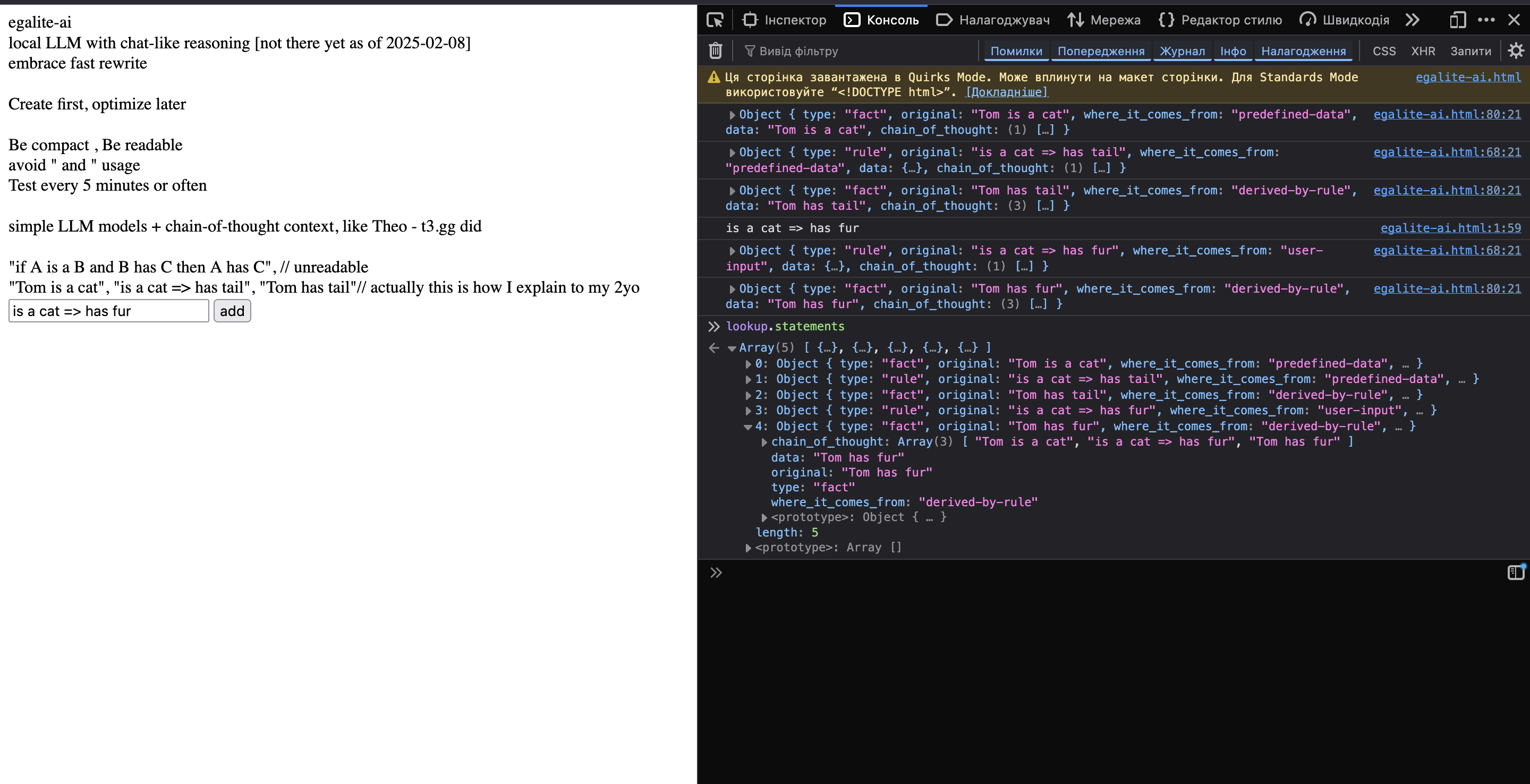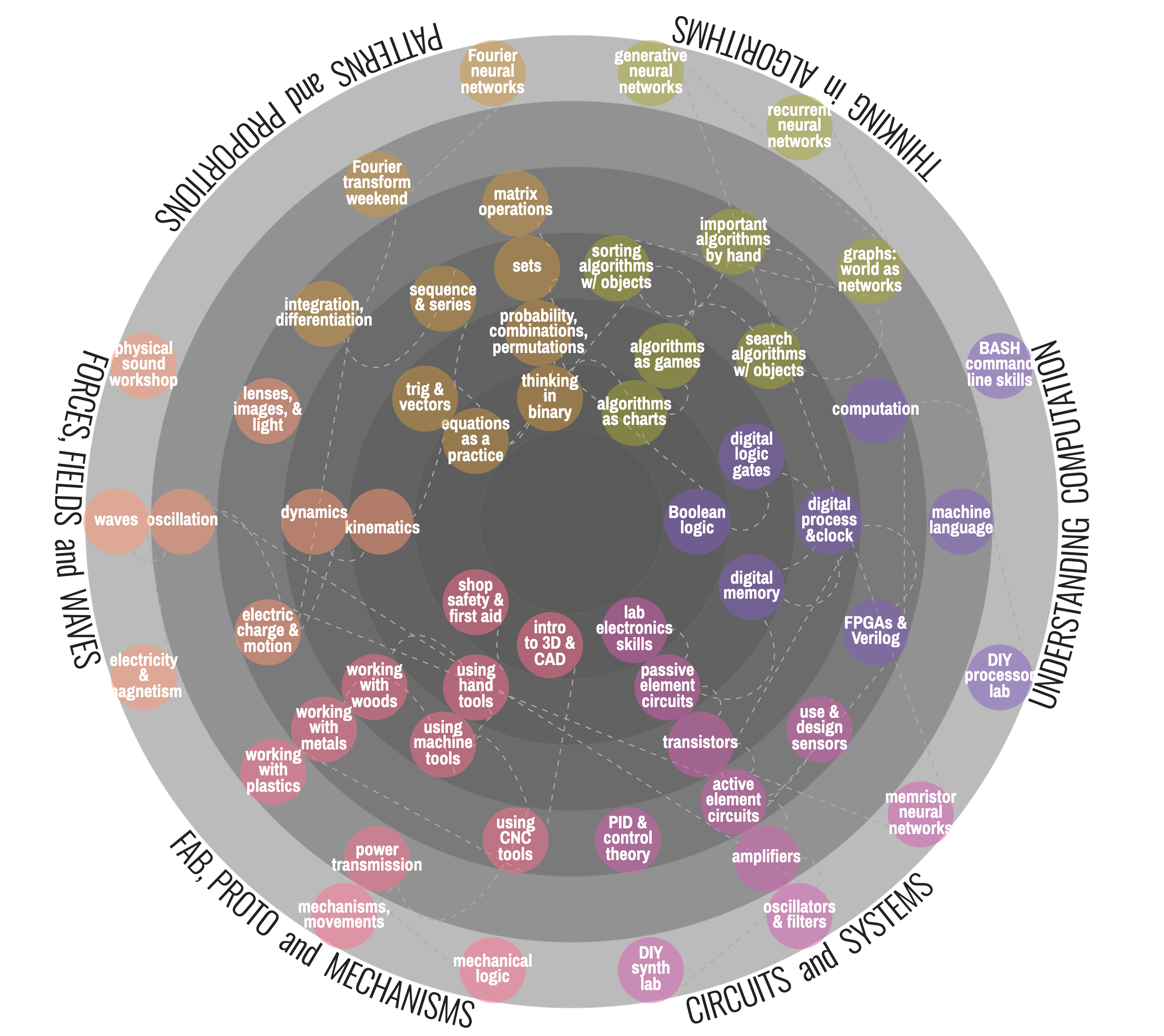✉️ Not subscribed yet? Subscribe to the Newsletter
Future of Coding Weekly 2025/02 Week 2
2025-02-10 00:09
📝 Choose Your Own Adventure Calculus 🤔 We are destroying software 🦾 Weak robots
Our Work
📝 Choose Your Own Adventure Calculus via Tomas Petricek
I do not have a cool video to share - only dry text! 🙂 but I think there is a very interesting "interaction pattern" that comes up in a lot of simple programming systems (at least the ones that I sometimes work on) - so this is an attempt to capture that...
Choose-your-own-adventure calculus
🎥 I Found Hidden Patterns in UK place names using Code via Conrad Godfrey
I'm getting increasingly more and more into the "app as a home cooked meal" paradigm, and this is me sharing some of that playful approach to coding with a non technical audience.
I hope that part of the future of coding, particularly AI facilitated, is more people able to satisfy their curiosity with code, in a playful way.
I wonder if there is a world where there are lots of programs that are totally ephemeral and just spun up on demand.
Project itself is at conradgodfrey.com/grep_britain
Devlog Together
📝 programmatic import via Tom Larkworthy
working towards programatic bulk export of observable notebooks into the lopefile format. Currently Observable has the concept of an import, but its a static macro type of thing, so there is no way of scripting it. I need to script it to be able to take any notebook and shove it into a standard website frame, that then becomes a single static file you can move around as a single HTML file artefact. Anyway, some progress towards that with a programmatic import. The import merges the notebooks in such a way as a subsequent export includes the import as a statically baked in dependancy. So it becomes offline-first at that point.
💬 Paul Tarvydas
Status:
- of interest: this is all fast enough to look like a REPL, although it spawns several heavy-weight processes and uses a local browser and websockets
- das2json is now written in javascript (formerly only Odin)
- das2json is a small program which converts a .drawio file into JSON
- this means that drawings can be reduced to JSON, a format which can be manipulated by just about any programming language
- VHLL language:
- got "RT" ("recursive text") compiler (transpiler) to run, at least for Python, and to self-compile
- RT is a VHLL that uses Python, Javascript and Common Lisp as "assemblers"
-
rtpushed to repo - next: test Javascript and Common Lisp self-compilation
- next-next: create a local copy of
t2tso that the whole thing resides in one repo - next-next-next: implement Larson Scanner in Javascript in a browser
- README.md expanded to include some discussion of the mechanics of this stuff.
🖊️ a page for our Inkling project via Ivan Reese
Small update from the Programmable Ink track at Ink & Switch — we just launched a page for our Inkling project.
(Whisper: actually, maybe a bit more than just a page . Take a peek!)
💻 rewrite rules usage in single html file via Oleksandr Kryvonos
"Tom is a cat", "is a cat => has tail", "Tom has tail"
...
rewrite rules usage in single html file
....

Thinking Together
💬 Karl Toby Rosenberg
A bit off-the-wall, but I’m thinking about what true “spatial computing” (or insert buzz-term here) visual programming could look like, or instead of the word “true”, interesting, pragmatic, and unique. I’ll post something if I think of anything at all, but in the meantime, I’d be curious to hear thoughts. One thing I don’t want to do is rely on wire spaghetti everywhere. To me, interesting problems arise because of the spatial component. Things going out of view.
📝 Wrangler: interactive visual specification of data transformation scripts via Tomas Petricek
I would like to recreate an example of some nice data wrangling / data cleaning user experience based loosely on programming by demonstration. The classic reference for things like this I know of is Wrangler (Wrangler: interactive visual specification of data transformation scripts). Are there nicer newer things I should be looking at?
💬 Scott
Has anyone here spent much time thinking about how the business of software changes as AI models, techniques, and devtools improve?
In particular, I've been spending a lot of time thinking about the implications of:
1) what happens when things that previously took 6mo-1y to build out are quickly turning in to $0.10 API calls today and once models are small enough, architectures optimize more, and hardware improves, transform into a low level OS primitive tomorrow
2) do we need to start accounting for software as an asset differently when the payback period gets measured on a much shorter timeline?
3) internally, how much time do we need to focus on reducing our Time To Rebuild vs letting external forces reduce it for us?
🤔 We are destroying software via Andreas S
Hey 👋 this one could be interesting:
We are destroying software (Hacker News Discussion)
Is programming culture collapsing under its own frustrations(technical and social and all in between and towards each other?)?
What do you think?
🦾 Weak robots via Tak Tran
🤖 I’m reading about weak robots (Panasonic also made a “farting cat robot” called Nicobo), and I’m loving the idea:
Exposing “weaknesses” instead of hiding them inside creates a space for connection in a relationship. Furthermore, it creates a relationship in which both parties can compensate for each other’s imperfections and draw out each other’s strengths. The “weak robots” prove this, says Okada, and the same principle applies in human-to-human relationships.
“However, we have always lived in a society that encourages people to be self-sufficient, so it is difficult for us to show our weaknesses. Still, sometimes a weakness can turn into a strength when we expose it and trust the other party. I hope that ‘weak robots’ will serve as a model for restoring rich and flexible relationships to society, and will help loosen the intolerance that exists in the world.”
“Weakness” dissolves hierarchical relationships and the boundaries of doer and receiver, and in this sense, it is a “strength” that enriches the relationship. The “weak robots” taught me the essence of what we should aim for in a diverse society.
Also love the idea of soft robots like Toyota’s Punyo. They’re such a refreshing take on robots, as opposed to the dystopian humanoid robots that the big tech companies seem like to be striving for 😬
This rabbit hole started from seeing a Megatron transforming robot, which initially triggered all my dormant “thats, so cool!” childhood dreams - but seeing it fail at a few voice commands, and being quite unnatural outside of the preprogrammed/animated tasks^, I was yearning for better forms of robotics. About 7 yrs ago, I thought cozmo/vector, had potential, esp with their team’s ex-pixar experience, but these products seem to have become hollowed out after running out of startup cash and being sold off 😢 The programming aspects of these consumer robots are pretty disappointing too - mainly relying on block based programming, which seems quite primitive compared to what the hardware is capable of. I guess the more modern approach is to use some blend of ChatGPT-esque interface, but that’s quite clunky too.
Anyone know of any delightful programming interfaces for robots? Or other interesting alternatives to the Terminator style robots coming out?
^ To be fair, when it worked, it was amazing 😍 They even got the original voice actors, to add to the nostalgia value.
Content
🚀 Plan 9 night via Jeff Lindsay
Good to see people excited about the history of coding as well! I'm hosting a Plan 9 night this Friday if anybody is curious about the forgotten successor to Unix. It's a watch party of curated videos on Plan 9 from Bell Labs, its history and ideas, and possibly some live demos.
🗺️ Wardley maps via Kartik Agaram

I've been drawing Wardley maps for a couple of years now, and also creating debug UIs inspired by Glamorous Toolkit. It's surreal to see Simon Wardley and Tudor Girba collaborating.
🎙️ Gigahand Dreams long form interview podcast via Tak Tran
Loving the Gigahand Dreams long form interview podcast atm. It’s a nice intersection between tech/art/education/making, from Jay Silver who is one of the people who created the Makey Makey.
Last interview I watched was with Andy Cavatorta, who makes these big crazy tech art contraptions eg, an instrument for Björk and a 5 player pinball machine to teach the ideas behind economics.
Some highlights from it:
- “How to make things you don’t know how to make” - prototype a lot ! And be relentless about it - __ “prolific prototyping” and “discovery orientated design”
-
Mouse in a maze types
-
The specialist - can run one specific maze, really quickly
- The generalist - has the fortitude to wander many mazes, but not quickly
-
The prototyper - can run unfamiliar mazes quickly, solve unfamiliar problems
-
Telharmonium - the first electronic music streaming service made using giant organs and the telephone switch board
- He’s created a curriculum for teaching his prototyping process that he has developed over the years, and takes you through algos, maths, electronics, physics, using making tools and programming - which sounds amazing! Too bad I ain’t in NYC though.

Music
🎼 Jacob Collier x MusicFX DJ via William Taysom
See Jacob Collier play with Google's MusicFX DJ. He basically uses MusicFX as a sort of silly sampler. It's a more interesting use than whole-cloth generation. This is what he comes up with in about two hours.
👨🏽💻 By 🐘 @[email protected] 🐦 @warianoguerra
💬 Not a member yet? Check the Future of Coding Community
✉️ Not subscribed yet? Subscribe to the Newsletter / Archive / RSS
🎙️ Prefer podcasts? check the Future of Coding Podcast